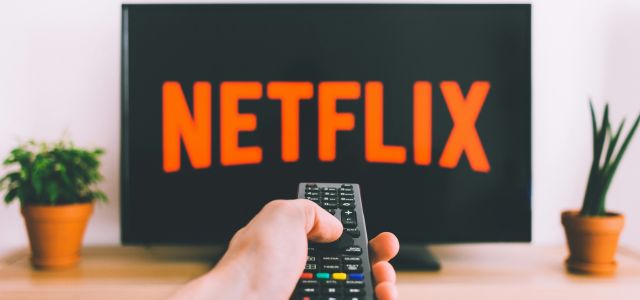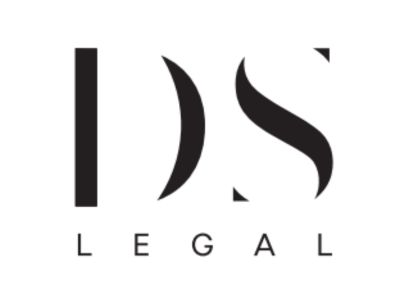In a significant victory for international entertainment giants, the Delhi High Court has issued a dynamic injunction aimed at safeguarding the copyrighted content of leading global studios, including Warner Bros., Netflix, Disney, and others. The injunction targets 45 rogue websites accused of unauthorized streaming and distribution of motion pictures and television series and sets a powerful precedent in India’s ongoing fight against digital piracy.
The case, brought forward by Warner Bros. Entertainment Inc., Columbia Pictures Industries, Inc., Disney Enterprises, Inc., Netflix US, LLC, SBS Co. Ltd., SLL Joongagng Co. Ltd., and CJ ENM Co. Ltd., alleged that these infringing websites were unlawfully hosting and streaming copyrighted works without the necessary authorization or licenses. Justice Saurabh Banerjee presided over the matter, delivering a ruling that sends a strong message to content pirates across India.
Hydra-headed websites and the growing threat of digital piracy
Justice Banerjee’s judgment drew attention to the pervasive and evolving nature of online piracy, describing it as a “hydra-headed” menace. Just as the mythical hydra would sprout multiple heads when one was cut off, websites involved in piracy tend to reappear under different domain names, even after being taken down. This adaptability of infringing websites has made it increasingly difficult for copyright holders to protect their content in the digital space.
In the court’s view, technology, which serves as a powerful tool for innovation and communication, is being misused by these rogue websites to illegally distribute copyrighted works. Justice Banerjee emphasized the far-reaching consequences of this misuse, warning that if technology is not used through legitimate channels, it can quickly transform from a “boon” into a “bane.”
In a striking metaphor, the judge compared these infringing websites to a young tree, which, if left unchecked, would grow into a sprawling entity with deep roots. He underscored the importance of addressing such illegal activities early to prevent them from causing further damage to the entertainment industry and intellectual property rights.
The dynamic injunction: a preventive tool for the future
What sets this ruling apart is the dynamic injunction granted by the court. Unlike traditional injunctions, which are typically limited to specific acts or entities, this dynamic order is forward-looking. It not only prohibits the 45 named websites from further infringing activity but also extends to any future infringers who may attempt to carry out similar violations. The dynamic nature of the injunction allows for more flexibility in enforcement, enabling the plaintiffs to combat new infringing websites as they emerge without needing to return to court for each new case of piracy.
The court’s decision mandates strict compliance with the order, warning that failure to follow the injunction will result in legal consequences. Justice Banerjee made it clear that the injunction must be followed in “letter and spirit,” ensuring that the legal protections extend well beyond the immediate scope of the current case.
A major victory for entertainment giants
This ruling marks a significant victory for the international entertainment companies involved. With the rise of digital streaming platforms like Netflix and Disney+, the entertainment industry has become increasingly vulnerable to online piracy. Illegal streaming websites can seriously undermine the profitability of film and television productions by making copyrighted content freely available, often within hours of its release.
The dynamic injunction helps bridge a critical gap in the legal framework, providing content creators and distributors with a stronger mechanism to combat piracy in real time. By preventing rogue websites from resurfacing under new domains, the court has addressed one of the most frustrating aspects of anti-piracy enforcement.
Setting a precedent for the future of anti-piracy in India
The Delhi High Court’s ruling sets a powerful precedent for future cases involving digital piracy in India. The entertainment industry is likely to see this as a welcome step toward more effective legal mechanisms for protecting intellectual property in the online sphere.
India, which has a burgeoning digital media and entertainment market, is also home to a significant number of pirated content platforms. This ruling not only strengthens the fight against piracy but also underscores the need for continued vigilance by courts, regulators, and content creators to address the evolving challenges posed by illegal streaming platforms.
The case also highlights the judiciary’s understanding of the complexities of the digital age and the growing reliance on technology. By granting a dynamic injunction, the court has effectively empowered copyright holders with a proactive tool to combat piracy rather than leaving them to react to each new infringement case in isolation.
Conclusion
The Delhi High Court’s dynamic injunction against rogue websites streaming pirated content marks a crucial development in India’s intellectual property law. It reinforces the legal rights of international entertainment companies while setting a strong precedent for future cases of online piracy.
Justice Saurabh Banerjee’s judgment serves as a reminder that the misuse of technology for illegal activities will not be tolerated. As India continues to emerge as a global hub for digital content, this ruling is an important step in protecting the intellectual property rights of content creators and distributors, ensuring that innovation and creativity can flourish without the threat of piracy.
This ruling not only represents a victory for Warner Bros., Netflix, Disney, and other entertainment giants but also paves the way for stronger legal measures to tackle online piracy in India in the future.

Written by Deepika Shyam
Founder, DS Legal
You may also like…
UEFA partners with Alliance for Creativity and Entertainment to enhance global anti-piracy strategy
October 21, 2025 - The Union of European Football Associations (UEFA) has officially joined the Alliance for...
EUIPO and UANIPIO welcome the integration of Ukraine’s trademarks into TMview
The European Union Intellectual Property Office (EUIPO) and the Ukrainian National Office for Intellectual Property...
Jägermeister succeeds in opposing the EU trademark application Alten Kräuterfrau for alcoholic beverages
Mast-Jägermeister SE filed an opposition on the grounds of Article 8(1)(b) – likelihood of confusion between the signs...
Contact us to write for out Newsletter














